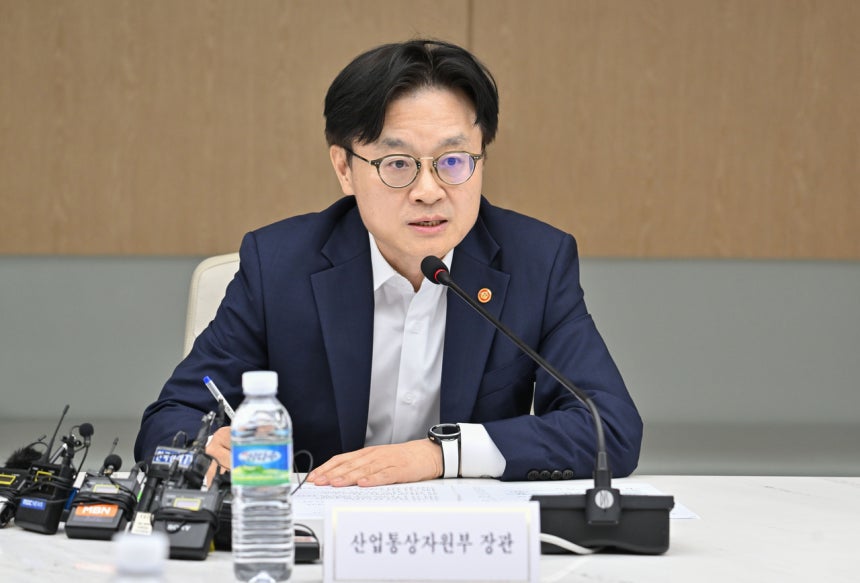“Resolving Uncertainty, Securing Competitive Conditions
Will Prepare Follow-up Support for Export Companies”
,
,
,
 |
,
,
, ‘On the 4th, Kim Jeong-gwan (pictured), Minister of Trade, Industry, and Energy, emphasized the achievements of the Korea-U.S. tariff negotiations, stating, “We will endeavor to strengthen cooperation with the U.S. in strategic industries such as shipbuilding, automobiles, semiconductors, and bio, and use this as a new opportunity to enter the U.S. market.”’
,
, ‘Minister Kim said at the ‘U.S. Trade Strategy Round Table’ meeting held at the Korea Chamber of Commerce and Industry in Jung-gu, Seoul, “With the conclusion of the Korea-U.S. tariff negotiations, the short-term export uncertainty for our companies has been resolved, and competitive conditions not unfavorable compared to major countries have been secured.”’
,
, ‘Our negotiation team, composed of Deputy Prime Minister and Minister of Economy and Finance Koo Yun-cheol, Minister Kim, and Trade Negotiations Headquarters Chief Yeo Han-koo, agreed with U.S. President Donald Trump at the White House in Washington D.C. on the 30th of last month (local time) to lower the mutual tariffs from the existing 25% to 15% in exchange for investing $350 billion (about 487 trillion won) in the U.S. The 15% tariff rate is the same level as Japan and the European Union (EU).’
,
, ‘However, during this negotiation process, the core of the Korea-U.S. Free Trade Agreement (FTA), “mutual no tariffs,” was effectively abolished, and a 50% item-specific tariff is maintained on steel and aluminum, leading to anticipated losses for the relevant industries. Also, the U.S. might present additional demands for improving non-tariff barriers such as relaxing quarantine on agricultural products, online platform law, and exporting Google Maps.’
,
, ‘Minister Kim stated, “We will prepare follow-up support measures in response to U.S. tariff actions, such as resolving export difficulties, entering alternative markets, and providing tax and financial support,” adding, “In the mid-to-long term, we will pursue strategies that can overwhelmingly enhance the fundamental competitiveness of our industry.” Bae Moon-sook, reporter’
,
,

